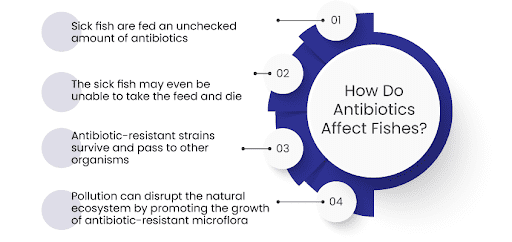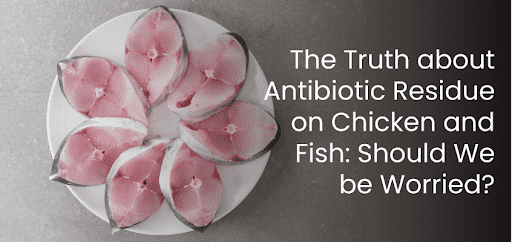Introduction
Since the discovery of antibiotics by Alexander Flemings in 1929, antibiotics have been developed extensively and have revolutionised the medical sector and the food industry. Today, we will talk about the positive and negative sides of antibiotics.
Our Wellness Programs
What are Antibiotics?
Antibiotics are chemicals primarily derived from soil microorganisms; they are used to kill infectious germs. Doctors have been using antibiotics to treat humans and livestock like fish, poultry, goats, pigs, and other farm animals.
Looking for services related to this subject? Get in touch with these experts today!!
Experts

Banani Das Dhar

India
Wellness Expert
Experience: 7 years

Devika Gupta

India
Wellness Expert
Experience: 4 years

Trupti Rakesh valotia

India
Wellness Expert
Experience: 3 years

Sarvjeet Kumar Yadav

India
Wellness Expert
Experience: 15 years

Shubham Baliyan

India
Wellness Expert
Experience: 2 years

Neeru Dahiya

India
Wellness Expert
Experience: 12 years
Uses of Antibiotics
Antibiotics have the following uses:
- Treatment of diseased animals.
- Treatment of a group of animals in advance in reciprocation for some sick animals in the group.
- The preventive use of antibiotics well in advance to forbid any future disease development.
- Antibiotics are included in small amounts in animal feed to increase growth for better meat, eggs, or milk production in relatively short periods by reducing mortality and enhancing the reproduction rate.
What are the terrible effects of antibiotics?
Antibiotics may have some terrible effects, such as:
- Antibiotics may also contaminate the meat and animal products for human consumption as antibiotic residues can pass into the human body causing various illnesses like stomach disorders, diarrhoea, vomiting, allergies, etc., and triggering carcinogens.
- Like, chloramphenicol residues from fish—even in lower dosages—can increase the risk of cancer and aplastic anaemia, a disease that prevents the bone marrow from producing R.B.C. and WBC. Sulfamethazine, furazolidone, and oxytetracycline antibiotics residues may trigger a disease like cancer.
- Overuse of essential antibiotics also results in developing antibiotic-resistant strains of bacteria that may survive in the presence of antibiotics. These bacteria can pass into the human system via animal products and colonise the intestinal gut making the average microbiota resistant.
What is the harmful effect of azithromycin used In chicken?
Chicken is one of the most consumed meats worldwide, whose production is approximately 90 billion tons annually. Azithromycin is a common derivative of the antibiotic erythromycin used to treat various bacterial infections caused by bacterial genera like Streptococci, Staphylococci, Mycoplasma, Chlamydia, Bartonella, Babesia, and M.gallisepticum and M.avium (commonly infecting birds like chicken).
Azithromycin is highly bacteriostatic, meaning a low dose works for an extended period. When used in higher doses, it can quickly accumulate in polymorphonuclear leukocytes (P.M.N.), releasing a toxic concentration in the surrounding cells. Moreover, it gets eliminated from the body very slowly.
So, residual azithromycin from poultry can pose a significant risk to humans as it may cause abnormal heart rhythm that can enhance cardiovascular disorder and liver damage.
Why do Antibiotics use for farm animals?
It is essential to use antibiotics on farm animals due to the following reasons:
- Antibiotics help in curing farm animals suffering from various diseases.
- Animals treated with antibiotics are devoid of various food-borne infections, thereby keeping different bacteria from entering the human body. Animals are given proper withdrawal time, during which antibiotics residues leave their system through excretion and hence can be considered safe for consumption.
- Unhealthy animals require more growth periods and more food grain. In the long run, it needs more time, water, land, fertilisers, and workforce to grow and thus produce a more carbon footprint than healthy treated animals.
- It prevents animal infections like Campylobacter spp., Vibrioparahaemolyticus, Aeromonas hydrophila, and E.coli that pose a severe threat to humans when ingested through contaminated animal products. Antibiotics helped in preventing the spread of these parasitic diseases.
- Studies show that antibiotics help eliminate harmful bacteria from the animal gut and increase their digestion, improving their health and growth.
- Maintaining proper hygiene, clean living standards, and better livestock nutrition will also improve their natural immunity.

How Do Antibiotics Affect Fishes?
Antibiotics affect fishes in more ways than one. Some of them are as follows:
- Sometimes, sick fish are fed an unchecked amount of antibiotics to treat them. When certain fishes in a population get infected, antibiotics are added to their feed profusely. It ensures that the sick ones get treated.
- Mostly, the sick fish may even be unable to take the feed and die in the end, thereby curing the whole population.
- It promotes the growth and prevention of diseases in the culture. But, the antibiotic-resistant strains survive and pass to other organisms like humans.
- Antibiotics can also contaminate the water, getting flushed into the groundwater via soil and the ocean. Aquatic environments are easily adaptable to change; it supports the easy propagation of antibiotic-resistant mutations from one strain to another. This pollution can disrupt the natural ecosystem by promoting the growth of antibiotic-resistant microflora, which can eventually pass into the human body, causing illness.
How To Create Awareness About The Reckless Use Of Antibiotics On Chicken And Fish?
Concerned people should be made aware of the following points:
- Antibiotics should be used strictly for treatment only and not for growth-promoting purposes in livestock.
- Most people should adhere to a strict dosage of antibiotics on farm animals.
- Provision of antibiotics should be given under veterinary prescription only and should be administered to animals in the veterinarian’s presence.
- Consumers should be aware of the prudent use of antibiotics in their food and daily lives. It means that antibiotics should also be used for human use only when needed and comply with the dosage as prescribed by doctors to prevent antibiotic resistance.
- Individuals can opt for antibiotic-free or organic labels on food items.
- Consumers can check for food certification, which indicates monitored antibiotic residue levels.
- Clean every raw animal product, utensils, and hands thoroughly after handling raw meat.
- Chill raw meat at two °C for two hours before cooking.
- Separately store raw food materials from cooked or ready-to-cook food products as bacteria can contaminate them.
- Like poultry products, cook meat at 74°C and pork and lamb at 72°C to kill residual bacteria.
Conclusion
Many human deaths are reported due to antibiotic resistance, around 35,000 in the U.S. itself. Bacterial resistance can cause several life-threatening conditions like opportunistic infection and more severe symptoms like consistent nausea and loose motion.
The 3R strategy of ‘replace, reduce and refine’ can help promote responsible usage of antimicrobials in the animal food industry. More research should be encouraged to develop alternative modes of boosting animal immunity and other technologies to remove these pollutants from the existing system effectively.










